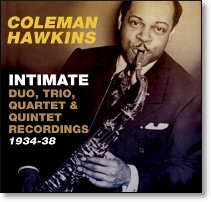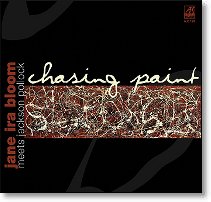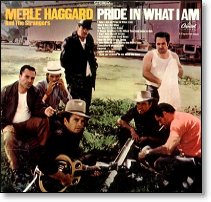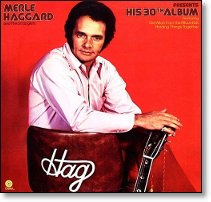Latest
2024
Apr
Mar
Feb
Jan
2023
Dec
Nov
Oct
Sep
Aug
Jul
Jun
May
Apr
Mar
Feb
Jan
2022
Dec
Nov
Oct
Sep
Aug
Jul
Jun
May
Apr
Mar
Feb
Jan
2021
Dec
Nov
Oct
Sep
Aug
Jul
Jun
May
Apr
Mar
Feb
Jan
2020
Dec
Nov
Oct
Sep
Aug
Jul
Jun
May
Apr
Mar
Feb
Jan
2019
Dec
Nov
Oct
Sep
Aug
Jul
Jun
May
Apr
Mar
Feb
Jan
2018
Dec
Nov
Oct
Sep
Aug
Jul
Jun
May
Apr
Mar
Feb
Jan
2017
Dec
Nov
Oct
Sep
Aug
Jul
Jun
May
Apr
Mar
Feb
Jan
2016
Dec
Nov
Oct
Sep
Aug
Jul
Jun
May
Apr
Mar
Feb
Jan
2015
Dec
Nov
Oct
Sep
Aug
Jul
Jun
May
Apr
Mar
Feb
Jan
2014
Dec
Nov
Oct
Sep
Aug
Jul
Jun
May
Apr
Mar
Feb
Jan
2013
Dec
Nov
Oct
Sep
Aug
Jul
Jun
May
Apr
Mar
Feb
Jan
2012
Dec
Nov
Oct
Sep
Aug
Jul
Jun
May
Apr
Mar
Feb
Jan
2011
Dec
Nov
Oct
Sep
Aug
Jul
Jun
May
Apr
Mar
Feb
Jan
2010
Dec
Nov
Oct
Sep
Aug
Jul
Jun
May
Apr
Mar
Feb
Jan
2009
Dec
Nov
Oct
Sep
Aug
Jul
Jun
May
Apr
Mar
Feb
Jan
2008
Dec
Nov
Oct
Sep
Aug
Jul
Jun
May
Apr
Mar
Feb
Jan
2007
Dec
Nov
Oct
Sep
Aug
Jul
Jun
May
Apr
Mar
Feb
Jan
2006
Dec
Nov
Oct
Sep
Aug
Jul
Jun
May
Apr
Mar
Feb
Jan
2005
Dec
Nov
Oct
Sep
Aug
Jul
Jun
May
Apr
Mar
Feb
Jan
2004
Dec
Nov
Oct
Sep
Aug
Jul
Jun
May
Apr
Mar
Feb
Jan
2003
Dec
Nov
Oct
Sep
Aug
Jul
Jun
May
Apr
Mar
Feb
Jan
2002
Dec
Nov
Oct
Sep
Aug
Jul
Jun
May
Apr
Mar
Feb
Jan
2001
Dec
Oct
Sep
Aug
Jul
Jun
May
Apr
Mar
Feb
Monday, May 30, 2016
Music Week
 |
Music: Current count 26674 [26660] rated (+14), 424 [428] unrated (-4).
Right. Week cut short on Friday, after I posted Rhapsody Streamnotes on Wednesday. Missed the Festen album there -- you always miss something. RED Trio is pretty good too. The other Clean Feeds will have to await my return, in a couple weeks or so. I'll be checking email, but not much more. Hopefully get some reading done. Maybe even figure out what the fuck I'm doing with my retired, reclusive life.
New records rated this week:
- Adult Books: Runing From the Blows (2016, Lolipop): [r]: B+(*)
- Lucy Dacus: No Burden (2016, Egghunt): [r]: B+(***)
- Festen: Festen (2015 [2016], Clean Feed): [cd]: A-
- Kevin Gates: Islah (2016, Atlantic): [r]: B+(*)
- Will Goble: Consider the Blues (2015 [2016], OA2): [cd]: B+(*)
- Tony Malaby Paloma Recio: Incantations (2015 [2016], Clean Feed): [cd]: B+(***)
- Sei Miguel: (Five) Stories Untold (2014-15 [2016], Clean Feed): [cd]: B+(**)
- Nick Millevoi: Desertion (2015 [2016], Shhpuma): [cd]: B+(**)
- Myriad 3: Moons (2016, ALMA): [cd]: B+(*)
- Oddisee: The Odd Tape (2016, Mello Music Group): [r]: B+(*)
- RED Trio/John Butcher: Summer Skyshift (2015 [2016], Clean Feed): [cd]: B+(***)
Recent reissues, compilations, and vault discoveries rated this week:
- Fame: Jon Savage's Secret History of Post-Punk 78-81 (1978-81 [2012], Caroline True): [r]: B+(**)
- Allen Lowe: Louis Armstrong: An Avant Garde Portrait (1992 [2016], Constant Sorrow): [bc]: B+(***)
Unpacking: Found in the mail last week:
- Andrew McAnsh: Illustrations (self-released)
- Jason Palmer/Cedric Hanriot: City of Poets (Whirlwind)
- Roberta Piket: One for Marian: Celebrating Marian McPartland (Thirteenth Note)
- Samo Salamon/Stefano Battaglia: Winds (Sazas/Klopotec)
Thursday, May 26, 2016
Rhapsody Streamnotes (May 2016)
Pick up text here.
Monday, May 23, 2016
Music Week
 |
 |
Music: Current count 26660 [26641] rated (+19), 428 [428] unrated (+0).
Another low rated count this past week. Been busy with other stuff, and took my own sweet time with several of these items. Next week promises to be even more distracting, then I'll drive east, making the rounds (DC, NY, parts of New England which may or may not touch Boston, Buffalo, then back through Arkansas and Oklahoma). No real schedule other than June 1-5 in New York City, the main event my nephew's wedding. I haven't driven out of town since October, so I figure I'm overdue for a break from the humdrum. Just not sure how much longer I'll be able to do this sort of thing, so it's also something of a test.
Before I leave, I'll post a Rhapsody Streamnotes. Draft file has about 108 records in it, but only 48 are new -- most of the body count came from my Merle Haggard mop up nearly a month back. Very little new non-jazz in the draft file -- nothing A-list (vs. five A-list jazz albums), only three B+(***) (Open Mike Eagle, Homeboy Sandman, Linda Gail Lewis). Actually, until this month the year-in-progress list wasn't so imbalanced: it's currently 18 jazz, 13 non-jazz (counting Gary Lucas as jazz), so a month ago it must have been 13-13. I admit to not having looked very hard, with nearly all of those 13 non-jazz albums recommended by trusted sources: seven A- or higher from Robert Christgau, four more from Michael Tatum (counting Pet Shop Boys, which he wound up dropping to B+, and Gwen Stefani, which I got to first). That leaves Gambari Band and Margo Price (both on Jason Gubbels' First Quarter list.
Tatum published his second Downloader's Diary last week, which includes plaudits for two records not yet on Rhapsody: Beyoncé Lemonade and Robbie Fulks' Upland Stories. I'll get to them when I find them, but for now will only note that they are also Christgau-approved -- also haven't heard Kevin Gates' Islah, which Christgau likes (A-) and Tatum doesn't (B-). Only other quibble I have is the pan on Margo Price. Reminds me of the gripes some people had about Gillian Welch, complaining that her "authenticity" was fake because she hadn't earned it. Of course, could be that I have the record overrated -- I'm not terribly picky about clichés, and when I saw her on some late night show she came off quite dull. Should give it another spin at some point.
Christgau's column on Beyoncé and Kevin Gates is here. Hope to get an update done on his website by the time I drive off. Maybe he'll finally offer us a 2015 Dean's List?
Clifford Ocheltree and Phil Overeem both wrote in to assure me that the remastered sound on Dust-to-Digital's Blind Alfred Reed's book/CD, Appalachian Visionary. I had given a somewhat qualified A- to Document's old Reed compilation, the prosaically titled Complete Recorded Works in Chronological Order (1927-1929), so I took the unprecedented step of writing up an A- entry on the new comp in May's Rhapsody Streamnotes. That way it will show up on my year-end list, which is always hurting for reissues. I should, however, offer two warnings here: one is that the $30 list price is stiff, not that the fancy book won't be interesting; the other is that Reed is not for anyone who is the least bit squeamish about political correctness: he's probably a racist, and definitely a misogynist, and if you can't laugh at his absurdities, you shouldn't bother.
New records rated this week:
- The Bill Belasco Trio: Three Musicians (2016, Summit): [cd]: B+(*)
- Ran Blake: Ghost Tones: Portraits of George Russell (2010 [2015], A-Side): [dl]: B+(***)
- Anthony Braxton: 3 Compositions (EEMHM) 2011 (2011 [2016], Firehouse 12, 3CD): [r]: B+(**)
- Marialuisa Capurso/Jean-Marc Foussat: En Respirant (2016, Fou): [cd]: B
- Empirical: Connection (2015 [2016], Cuneiform): [dl]: B+(***)
- Erik Friedlander: Rings (2016, Skipstone): [cd]: B+(***)
- The Funky Organics: The Funky Organics (2016, Chicken Coup/Summit)
- Trevor Giancola Trio: Fundamental (2015 [2016], self-released): [cd]: B+(*)
- Glitterbust: Glitterbust (2016, Burger): [r]: B+(*)
- Barry Guy: The Blue Shroud (2015 [2016], Intakt): [cd]: B+(***)
- Mimi Jones: Feet in the Mud (2015 [2016], Hot Tone Music): [cd]: B+(*)
- The Stan Kenton Legacy Orchestra: Storming Through the South (2016, Summit): [cd]: B+(*)
- Lok 03+1: Signals (2016, Trost): [bc]: B+(**)
- Luis Perdomo: Montage (2015 [2016], Hot Tone Music): [cd]: B+(*)
- ResAUnance: Migration (2014 [2016], FMR): [cd]: B+(**)
- Ron Stabinsky: Free for One (2015 [2016], Hot Cup): [cd]: B+(*)
- Greg Ward: Touch My Beloved's Thought (2016, Greenleaf Music): [cd]: A-
Recent reissues, compilations, and vault discoveries rated this week:
- Allen Lowe: Julius Hemphill Plays the Music of Allen Lowe (1989-91 [2016], self-released): [bc]: B+(**)
- Joey Negro: Remixed With Love by Joey Negro: Vol. Two (2016, Z, 2CD): [r]: B+(*)
Old music rated this week:
- Joint Venture: Ways (1989 [1990], Enja): [r]: B+(***)
Unpacking: Found in the mail last week:
- Alchemy Sound Project: Further Explorations (ARC): May 27
- Jonas Cambien Trio: A Zoology of the Future (Clean Feed)
- Lou Caputo Not So Big Band: Uh Oh! (JazzCat 47): June 3
- Chat Noir: Nine Thoughts for One Word (Rare Noise): advance, June 17
- Lume: Xabrecas (Clean Feed)
- Magnet Animals: Butterfly Killer (Rare Noise): advance, June 17
- Sei Miguel: (Five) Stories Untold (Clean Feed)
- Pascal Niggenkemper: Le 7ème Continent: Talking Trash (Clean Feed)
- Jim Self and the Tricky Lix Latin Jazz Band: ¡Yo! (Basset Hound): June 3
- Tyshawn Sorey: The Inner Spectrum of Variables (Pi): June 6
- Harvey Valdes: Point Counter Point (self-released)
Purchases:
- Lyrics Born: Now Look What You've Done, Lyrics Born! Greatest Hits! (1997-2015, Mobile Home)
Sunday, May 22, 2016
No real time for this today, so I'll just try to note a few brief links without providing much in the way of commentary. Main thing that chewed up time today was my sister's birthday. She wanted a party in the new/very old house, although circumstances pretty much restricted us to the living room (repainted bright blue, wood floors refinished). She set up a table on my sawhorses, and I brought over a large pot of jambalaya and a spice cake -- two old never-fail standbys. Only work on the house today was to reinstall the toilet, but after rebuilding the bathroom floor and covering it with vinyl sheet that feels like a milestone.
One minor piece of housekeeping: Laura Tillem urged me to send an excerpt from last week's Blowing Smoke post on Hiroshima and Obama, and something like it was published in the Wichita Eagle's Letters to the Editor today:
Columnist Leonard Pitts Jr., who normally is sensitive to racial affronts, insists that we not apologize for killing 200,000 Japanese with atom bombs -- the only time such weapons have been used on civilians -- because it was war ("Obama not apologizing for Hiroshima, nor should he," May 16 Opinion). So war means never having to say you're sorry?
I get that "war is hell," but I don't see that one should deny regrets after a war, or that there's no value in the simple decency of an apology, however paltry.
I fear that refusing to apologize for Hiroshima implies that atomic bombing of cities is something we can excuse doing again -- that it's one of those "options" that our political leaders insist they won't ever "take off the table." Indeed, current plans to spend more than $1 trillion to upgrade America's nuclear arsenal suggest that America's leaders are more committed than ever to threatening what we're repeatedly told is "a dangerous world" with instant destruction.
On the other hand, if we started to apologize for the atrocities that even Pitts admits America committed, maybe we'd be less prone to repeat them going forward.
OK, one big piece and long quote and comment:
Matt Taibbi: RIP, GOP: How Trump Is Killing the Republican Party: Just riffing on the headline, my initial reaction is that he's got it totally wrong. The Republican Party has been intellectually and morally dead for some time now. The Bush administration proved that any pieces of their agenda that they managed to implement rebounded disastrously, they've continued to perform similarly awful at the state and local levels, and under Obama congressional Republicans (even with their recent majority control) have failed to offer a single constructive proposal -- all they seem capable of doing is jeering and obstructing. So they're already brain dead, not that the media -- so fascinated with their spastic twitching -- has noticed let alone certified. Still, one thing Trump has going is that he's pretty clearly not implicated in their past failures, so how can one accuse him of killing the party? The more apt metaphor is that the party is already dead, and Trump is reanimating it, much like Dr. Frankenstein animated his monster. (I'm not current enough on the relevant pop culture to judge whether some sort of zombie trope might fit better, but John Quiggin's critique of "zombie economics" -- "how dead ideas still walk among us" -- applies to most of the rare occasions when Republicans attempt to present us with their version of thinking.)
The main argument against the death of the Republican Party is that Republicans keep polling well and winning elections, despite a track record of unmitigated horror. While some pundits argue that Trump is so repugnant and reviled that he may drag the whole party down to a calamitous defeat this fall, I don't see how adding palpable energy (and a soupçon of deniability) hurts the GOP. Taibbi's article is more nuanced than his headline, partly because it's more about Ted Cruz's failures than Trump's successes:
This led to the hilarious irony of Ted Cruz. Here was a quintessentially insipid GOP con man culled straight from the halls of Princeton, Harvard, the Supreme Court, the Federal Trade Commission and the National Republican Senatorial Committee to smooth-talk the yokels. But through a freak accident of history, he came along just when the newest models of his type were selling "the Republican establishment sucks" as an electoral strategy.
Cruz was like an android that should have self-destructed in a cloud of sparks and black smoke the moment the switch flipped on. He instead stayed on just long enough to win 564 delegates, a stunning testament to just how much Republican voters, in the end, hated the Republican kingmakers Cruz robotically denounced.
All of these crazy contradictions came to a head in Indiana, where Cruz succumbed in an explosion of hate and scorn. The cascade started the Sunday night before the primary, with a Cruz stump speech in La Porte that couldn't have gone worse.
Things went sideways as Cruz was working his way into a "simple flat tax" spiel, a standard Republican snake-oil proposal in which all corporate, estate and gift taxes would be eliminated, and replaced with a 10 percent flat tax and a 16 percent consumption tax. Not because the rich would pay less and the poor would pay more, but because America and fairness, etc. He was just getting to his beloved money line, claiming, "We can fill out our taxes on a postcard," when a 12-year-old boy interrupted with cries of "You suck!" and "I don't care!"
Cruz couldn't quite handle the pressure and stepped straight into the man-trap the moment presented. He lectured the kid about respecting his elders, then suggested the world might be a better place if someone had taught a young Donald Trump that lesson. It was a not-half-bad line of the type that the Harvard lawyer is occasionally capable. But Cruz couldn't help himself and added, "You know, in my household, when a child behaves that way, they get a spanking."
Boom! Within hours the Internet was filled with headlines about how Ted Cruz had suggested spanking someone else's 12-year-old for telling him he sucked.
This was on top of the ignominy of having already called a basketball hoop a "ring" while giving a speech on the gym floor in Knightstown, the home of the fictional Hickory team from Hoosiers. No American male would call a basketball hoop a ring, and even a French immigrant would know better than to do so in Indiana, but this was the kind of run he was on.
The rest of the race was a slapstick blowout. Carly Fiorina fell off a stage, and Cruz's wife, Heidi, actually had to answer a question from a Yahoo! reporter about her husband being called the Zodiac Killer. Heidi Cruz calmly responded that she'd been married to Ted for 15 years and "I know pretty well who he is." This, of course, was exactly what the wife of the actual Zodiac Killer would say, making for a perfectly absurd ending to a doomed campaign. [ . . . ]
Finally, on the morning of the Indiana primary, Cruz woke up to hear opponent Trump babbling that Cruz's own father had been hanging out with Lee Harvey Oswald before the assassination of John F. Kennedy, a bizarre take on a ridiculous National Enquirer story that Trump, of course, believed instantly. Trump brought this up on Fox and Friends, which let him run the ball all the way to the end zone. "I mean, what was he doing with Lee Harvey Oswald, shortly before the death -- before the shooting?" Trump asked. "It's horrible."
American politics had never seen anything like this: a presidential candidate derided as a haggardly masturbating incarnation of Satan, the son of a presidential assassin's accomplice, and himself an infamous uncaptured serial killer.
Despite the media humiliations, Cruz talked passionately of his supporters' resolve. "Just a few days ago, two young kids, ages four and six, handed me two envelopes full of change," he said. "All of their earnings from their lemonade stand. They wanted the campaign to have it."
The crowd cooed: Awwww! There was no way he could quit now and let those kids down. Except that moments later, Cruz did just that, announcing he was suspending his campaign because "the path to victory has been foreclosed." Then he fled the stage like he was double-parked.
Didn't initially plan to quote all of that, but it kept coming, and helps explain why Cruz, who had long been favored to win Indiana, and who supposedly cinched the win with a deal to get Kasich to skip the state and not split the anti-Trump vote, imploded so suddenly. But the key word there was "foreclosed": precisely the sort of word a Harvard lawyer would choose to indicate that he was quitting not because he had lost face with the voters or had decided that the principled differences he claimed against Trump had ceased to matter; rather, the moneyed interests behind his campaign decided to cut their losses and live with the consequences. Then, less than a week later, Kasich -- who after his deal with Cruz had nothing riding on the Indiana results -- dropped out as well, conceding the nomination and obviating the rest of the primary schedule. Clearly, the folks with the money decided that whatever uncertainty Trump posed wasn't enough of a threat to keep fighting against.
And a few real brief links:
Mike Konczal: Monopoly Power Is on the Rise in the US. Here's How to Fix That.
Rick Perlstein: The Chicago School: No, not about Chicago's notorious economists -- more about Chicago's charter schools and Rahm Emmanuel.
Wednesday, May 18, 2016
Daily Log
Thought experiment: Nephew Mike's wedding is June 3. Laura flies to New York on June 1 and has hotel reservations there until June 5 or 6. If I were to drive out, to get there on June 1 I would have to leave when?
- If I drove to New York on Wednesday June 1 from DC. I would want to have at least one whole day in DC, so I would need to get to DC on Monday May 30.
- If I drove straight to DC from Wichita, to get there May 30 I'd have to leave here May 28 (nominal three day drive: on I-70 I would normally get to Effingham first day, then Wheeling on second day, so third day would be relatively short).
- Alternate route would be to leave May 27 for Independence KS -- I could get off pretty late as that's only two hours -- and spend night there, then take I-44 across Missouri, skirt south of St. Louis to Louisville and West Virginia. I've done Independence to DC in two days, but they were very long. (Part of the problem was that I took a more direct, but much slower, route from Springfield to Lexington.)
- A longer alternate route would be to drive through Oklahoma, Arkansas, and Tennessee before heading up to DC, possibly taking some of the Blue Ridge Parkway. I have people to see in each of those states, which would add to the time required but break the drive up. I'm more inclined to reverse this route on the way back, after Buffalo. At least then I'd have more time, if not more patience.
The way back would head north from New York into Connecticut and Massachusetts, then west to Buffalo, then could continue to Detroit and Chicago, but more likely I'd head south to Nashville, then west through Arkansas and Oklahoma.
Tuesday, May 17, 2016
Daily Log
Laura suggested I send an excerpt from my Hiroshima piece to the Wichita Eagle as a letter. Let's see what can be done with it:
Leonard Pitts, who normally is sensitive to racial affronts, insists that we not apologize for killing 200,000 Japanese with atom bombs -- the only time such weapons have been used on civilians -- because it was war. So war means never having to say you're sorry? I get that "war is hell," but I don't see that one should deny regrets after a war, or that there's no value in the simple decency of an apology, however paltry. For instance, apologizing for the Trail of Tears didn't return the Cherokee to the Carolinas, but it did admit that we are embarrassed that our ancestors force-marched thousands of people over a thousand miles into permanent exile, and it affirmed that this is something we cannot contemplate ever doing again.
I fear that refusing to apologize for Hiroshima implies that atomic bombing of cities is something we can excuse doing again -- that it's one of those "options" that our political leaders insist they won't ever "take off the table." Indeed, current plans to spend over one trillion dollars to upgrade America's nuclear arsenal suggest that America's leaders are more committed than ever to threatening what we're repeatedly told is "a dangerous world" with instant destruction.
On the other hand, if we started to apologize for the atrocities that even Pitts admits America committed, maybe we'd be less prone to repeat them going forward.
Monday, May 16, 2016
Music Week
 |
 |
 |
 |
 |
 |
Music: Current count 26641 [26610] rated (+31), 428 [425] unrated (+3).
Rated count rebounded last week from a low 16 the previous week. Most of the gain came from delving into the back catalog of soprano saxophonist Jane Ira Bloom and drummer Matt Wilson. Both have good new records -- Wilson's Beginning of a Memory was a B+(***) last week, Bloom's Early Americans an A- below -- and sizable back catalogs going back to 1982 (Bloom) and 1996 (Wilson). I didn't find anything I didn't like, and did find a couple of albums that demanded A- grades.
For 2016 releases I've been working off several recent "so far" lists from redoubtable sources like Jason Gubbels and Phil Overeem. One recommendation there was a Dust-to-Digital compilation of Blind Alfred Reed called Appalachian Visionary. I couldn't find it but Rhapsody has Document's compilation of Reed's Complete Works, so I gave that a try. (The new compilation contains the same twenty songs plus two more attributed to the West Virginia Night Owls, and is packaged in an 84-page book.) I was conflicted on the grade: on the one hand, it features some of the worst misogynistic lyrics ever, and there's also that line about "we'll all be white in that heavenly light"; on the other the music grabs you even while it's obviously so primitive. And there's something to be said for its historical value.
The other old record that came up A- was a new compilation of Coleman Hawkins' European recordings. I didn't bother to check how redundant it is with other compilations I've heard -- I do know that it doesn't include the "Crazy Rhythm" sessions with Benny Carter and Django Reinhardt (one of the great moments in 1930s jazz). The Commodore sessions popped up in a search for something else. I'm pretty sure the Chu Berry sessions previously appeared on CD with some Lucky Thompson recordings: they're not enough to fill out a CD, and not great enough to validate Berry's legend. On the other hand, Hawkins' half could have been rated higher. I hedged because pretty much everything he recorded during the 1940s is brilliant.
I should also note that Paul Smoker died last week, age 75. Born 1941, played trumpet on various obscure avant-garde labels. I can't say as I've heard much of his early work, but Michael McNeill sent me his last two albums -- Landings and (with Phil Haynes) It Might Be Spring -- and they both came up A- for me. I'll look around for more -- probably won't find the CIMP albums, but maybe his Joint Venture with Ellery Eskelin?
New records rated this week:
- Bobby Avey: Inhuman Wilderness (2015 [2016], Inner Voice Jazz): [cd]: B+(***)
- Jane Ira Bloom: Early Americans (2015 [2016], Outline): [cd]: A-
- Etienne Charles: San Jose Suite (2015 [2016], Culture Shock): [cd]: B+(**)
- Rhys Chatham: Pythagorean Dream (2016, Foom): [cd]: B+(***)
- Open Mike Eagle + Paul White: Hella Personal Film Festival (2016, Mello Music Group): [r]: B+(***)
- Brian Eno: The Ship (2016, Warp): [r]: B+(*)
- Field Music: Commontime (2016, Memphis Industries): [r]: B
- Gunwale: Polynya (2016, Aerophonic): [cd]: B+(***)
- Linda Gail Lewis: Hard Rockin\' Woman! (2015, Lanark): [r]: B+(**)
- Linda Gail Lewis: Heartache Highway (2015 [2016], Ball and Chain): [r]: B+(***)
- Mexrrissey: No Manchester (2016, Cooking Vinyl): [r]: B+(*)
- Naftule's Dream: Blood (2013 [2016], self-released): [cd]: B+(***)
- Dave Rempis/Joshua Abrams/Avreeayl Ra + Jim Baker: Periheleon (2015 [2016], Aerophonic, 2CD): [cd]: A-
- Snarky Puppy: Family Dinner Volume Two (2016, Decca): [r]: B-
- Snarky Puppy: Culcha Vulcha (2016, Decca): [r]: C+
- Matt Wilson's Big Happy Family: Beginning of a Memory (2015 [2016], Palmetto): [cd]: B+(***)
Recent reissues, compilations, and vault discoveries rated this week:
- Coleman Hawkins: Intimate: Duo, Trio, Quartet & Quintet Recordings 1934-38 (1934-38 [2016], Acrobat): [r]: A-
- Professor Longhair: Live in Chicago (1976 [2016], Orleans, EP): [r]: B+(**)
Old music rated this week:
- Jane Ira Bloom: Mighty Lights (1982 [1983], Enja): [r]: B+(***)
- Jane Ira Bloom: The Red Quartets (1997-99 [1999], Arabesque): [r]: B+(***)
- Jane Ira Bloom: Sometimes the Magic (2000 [2001], Arabesque): [r]: B+(**)
- Jane Ira Bloom: Chasing Paint: Meets Jackson Pollock (2002 [2003], Arabesque): [r]: A-
- Jane Ira Bloom: Like Silver, Like Song (2004 [2005], ArtistShare): [r]: B+(***)
- Coleman Hawkins and Chu Berry: Tenor Giants (1938-43 [2000], Polygram): [r]: B+(***)
- Blind Alfred Reed: Complete Recorded Works in Chronological Order (1927-1929) (1927-29 [2012], Document): [r]: A-
- Matt Wilson: As Wave Follows Wave (1996, Palmetto): [r]: B+(*)
- Matt Wilson Quartet: Smile (1999, Palmetto): [r]: B+(***)
- Matt Wilson: Arts and Crafts (2000 [2001], Palmetto): [r]: B+(***)
- Matt Wilson Quartet: Humidity (2002 [2003], Palmetto): [r]: A-
Unpacking: Found in the mail last week:
- Jeff Denson Quartet: Concentric Circles (Ridgeway): June 10
- Kali Z. Fasteau: Intuit (Flying Note)
- Festen (Clean Feed)
- Erik Friedlander: Black Phebe (Skipstone): June 10
- Will Goble: Consider the Blues (OA2): May 20
- Tony Malaby Paloma Recio: Incantations (Clean Feed)
- Nick Millevoi: Desertion (Shhpuma)
- Myriad3: Moons (ALMA)
- Nacka Forum: We Are the World (Moserobie)
- New Standard Jazz Orchestra: Waltz About Nothing (OA2): May 20
- Bruno Parrinha/Luis Lopes/Ricardo Jacinto: Garden (Clean Feed)
- RED Trio/John Butcher: Summer Skyshift (Clean Feed)
Sunday, May 15, 2016
Blowing Smoke
A propos, I guess, of Obama's planned visit to Hiroshima this week, Tom Carson tweeted:
Only one thing is worse than Hiroshima. That is the likely death toll (American and Japanese) if we'd had to invade -- the only alternative.
The visit has raised the question of whether Obama should, on behalf of the government he is president of, apologize for the deliberate slaughter of some 200,000 Japanese civilians -- and, for that matter, for the fact that the United States was the first and thus far is the only nation to violate the taboo against using nuclear weapons in a war. We've been assured that he will not, and indeed that he can not offer any such apology -- although Ramesh Ponnuru's reasoning rests on a fairly dubious assumption:
If it was wrong to drop atomic bombs on civilian populations, and present leaders can rightly apologize for past wrongs, why shouldn't Obama apologize at Hiroshima? I think the answer is simple. Almost all Americans recognize that slavery and Jim Crow were grave moral wrongs. Most Americans don't view Hiroshima and Nagasaki similarly. They think we were justified.
Obama therefore cannot legitimately apologize on behalf of the American people. He can regret the loss of life while staying silent on the morality of the bombings. Any apology should be left to a future president -- and issued only if America reaches a new consensus on this issue.
Like many issues, what passes for a consensus here is rooted in a serious lack of historical information and a lot of myths that try to continue justifying war in modern society. The history is complicated and elusive, but the from a pure present-tense view the immorality of the bombings should be obvious. I'm not saying that we should make a habit of revaluating past events through present sensibilities -- I would even go so far as to argue that doing so precludes us from being able to understand why history happened as it did -- but really, you cannot seriously claim that dropping nuclear bombs on two cities is in any sense justifiable morally. Sure, you might try to argue that in some case political and historical exigencies make it necessary to do such a thing, and you may present some calculation that such an act produces results that are less awful than not doing it, but that doesn't alter the matter of morality -- at least I don't see how it could.
The historical question was originally muddied by Harry ("the buck stops here") Truman, who as president ordered atomic bombs to be dropped on two Japanese cities (Hiroshima and Nagasaki). Truman claimed that by using the bombs American troops might avoid having to invade and subdue the four main islands of Japan. His argument resonated because in recent battles -- especially Okinawa -- Japanese troops had refused surrender, fighting to the death, and because Japan surrendered unconditionally a few days after using (in Hirohito's words) "a new and most cruel bomb." This view has been repeated ever since, especially in the essay (and later book title) by Paul Fussell, Thank God for the Atom Bomb. (Fussell was a soldier who fought in Okinawa.)
Carson gives us a variation of this standard argument in his tweet -- although notably he includes future Japanese dead as well as American soldiers in the toll expected from invading Japan, a consideration that Truman and Fussell did not make in the least. Indeed, one could also include Japanese dead on all of their war fronts, as well as dead of their opponent armies and the civilians killed by both sides, and maybe even factor in some of those who starved or fell to disease, although the cease fire didn't put an immediate end to the latter. The nuclear bombs ultimately killed about 200,000 people, but you wouldn't have had to shorten the war by much to balance that out.
But even Carson is assuming here that the war had to be fought to a definitive end, that had the US not used nuclear bombs the only way to end the war would be through invasion, and that the invasion would have been far bloodier than Okinawa had been. (American deaths in Okinawa were 20,195, about 4% of all Americans to die in WWII. Japanese deaths included an estimated 77-110 thousand soldiers and 40-150 thousand civilians, i.e. 13-50% of the total civilian population. Japan had a population of 73 million in 1940.) Hardly anyone talks about the first point, since early in the war Roosevelt declared that he US would only accept unconditional surrender, but it's worth noting that that is rarely the way wars end, and in the end the US accepted a condition that Hirohito be allowed to continue, at least nominally, as Emperor (and not be prosecuted for war crimes).
We now know that by mid-1945 Japan was in extremely precarious straits: the US had effectively blockaded the homeland, isolating Japan's troops with no chance of resupply, and preventing import of food and other critical goods, causing widespread famine; and the US had bombed nearly every Japanese city, killing hundreds of thousands and displacing millions; many (perhaps most) government leaders saw that they had lost the war and were contemplating some sort of surrender; the Soviet Union, at the urging of the US, had finally declared war on Japan, which raised the prospect of divided occupation (as had already happened in Germany) -- some historians have suggested that fear of the Soviet Union had more to do with Japan's surrender to the US than the nuclear bombs did.
In 1965, Gar Alperovitz published the book Atomic Diplomacy: Hiroshima and Potsdam, which argues that an important factor in the US decision to drop the atom bomb on Japan was a desire to intimidate the Soviet Union. I've never quite bought this argument: if the US had seen the Soviet Union as an adversary at that time, why would Truman have pressed Stalin to enter the war against Japan? For that matter, why invite Stalin if Truman had understood that the bomb would have proven so immediately decisive (and therefore so intimidating)? Stalin himself accelerated the Soviet Union's planned entry into the war, perhaps because he was aware of plans to drop the bomb, but more likely because he was aware of Japanese feelers aimed at negotiating peace -- the Soviet Union had been ostensibly neutral in the US-Japan conflict, so seemed to Japanese leaders like the obvious intermediary. Not clear to me whether Stalin jumped in to restore Russian imperial claims (many lost during the disastrous 1905 war with Japan), to advance communism (as happened with the partition of Korea), or simply to provide a counterweight to the expansion of American interests -- all likely factors. But Stalin commanded a huge mobilized and battle-hardened army that quickly routed the Japanese in Manchuria and would have proved decisive in a ground invasion of Japan. And there can be no doubt that Japan's leaders, both for nationalist and capitalist reasons, feared the Russians much more than they dreaded a purely American occupation.
Weighing these factors, I find the Soviet entry to be the more decisive factor behind surrender, but it's easy to understand why that aspect has been forgotten in America, and why the atom bomb has been raised to such a high pedestal. Some major reasons:
- Politically, the US (and notably Truman) wanted to hog the credit for defeating Japan, and that desire grew over time, especially after containing Russia became a Cold War priority and the Communists took over China in 1949. In particular, Truman could point to his order to unleash the atom bomb as a decisive personal coup.
- Belittling its allies gave the US a much freer hand in occupying Japan and in molding the Japanese government to its taste.
- The Japanese found a certain solace in being the victims of such destructive technology, which helped them adopt a submissive stance -- what John Dower wrote about in his book Embracing Defeat: Japan in the Wake of World War II -- which made occupation more tolerable.
- Ever since, the decision to bomb Hiroshima has been tied up in political struggles, attacked by opponents of the Cold War (Alperovitz, for one) and by advocates of nuclear disarmament, defended tirelessly by supporters of post-WWII American militarism.
The thing to notice here is that the debate is less about the historical war than about later political stances. Still, those who do examine the history tend to raise questions, such as in this piece (which Milo Miles cited in response to Carson): Mark Weber: Was Hiroshima Necessary?. I think Weber makes a good case that a Japanese surrender could have been obtained without the atomic bombings. On the other hand, I also think that there was no way that either the political or military command in America could have decided to show such constraint, and I also believe that the bombings were a fitting end to the era of global imperialist war -- what Arno Mayer called the Thirty Years War of the Twentieth Century -- a demonstration of the futility of such war so graphic that no one could fail to get the point (not that certain vested interests didn't try).
As for the inevitability of the decision, you should understand three key things: how profoundly racist the US was regarding Japan (anti-Asian racism was layered on top of anti-African racism, but had a long and deep history in its own right, and that provided a prism even for viewing Japanese successes in stereotypes); how the US leadership had adopted an ethic of total war (something Churchill had practiced in WWI, but which when combined when racism would turn genocidal against Japan -- US firebombing of Japanese cities started well before Hiroshima); and nobody in the US command from Gen. Groves up seems to have really understood that nuclear weapons were anything more than souped up versions of the conventional bombs already used so prolifically, so it never occurred to them not to use a weapon they had invested so much money in (some scientists understood this, and eventually the concept sunk in).
No time tonight to unpack these three points, but John Dower's 1987 book War Without Mercy: Race and Power in the Pacific War is the place to start on how racism fed into the war -- a prequel to Dower's Embracing Defeat, cited above. There are also numerous books on the history of anti-Asian racism in the US, not least on the internment of Americans of Japanese ancestry during WWII -- itself a revealing prism into the racial attitudes of the time. There are even more books on the atom bomb project, of which Richard Rhodes' The Making of the Atomic Bomb and Dark Sun: The Making of the Hydrogen Bomb stand out.
One additional point I do wish to make is that the argument that had Truman not dropped the bomb the US would have had to invade Japan (as opposed to waiting for surrender) is at least as big and hoary a contrafactual as not dropping the bomb. The fact is that an orderly surrender with the Japanese political system intact was a much preferable solution than an invasion and occupation (as had already happened with Germany in 1945, although the US occupation of Iraq in 2003 is another example).
Also, the assumption that an invasion of Japan would have been a repeat of Okinawa scaled up about 150 times was unrealistic (basically a fever dream of American racism, which viewed all Japanese as preferring suicide to submission. Okinawa was a military outpost, where over 20% of the population was uniformed and ordered to sacrifice themselves to make Americans so fearful that they wouldn't dare invade. Japan itself had few soldiers left to defend the island -- most were stranded abroad -- and would have collapsed rapidly (not that the resulting chaos would have been easy to govern -- as I said, an orderly surrender was much preferable).
As Americans, we grow up accepting all sorts of self-flattering falsehoods, including the notion that the undoubted evil of the Axis powers' aggression justifies everything that the US did to defeat them. The fact is that the US did many things that later generations should be ashamed of, and apologizing for them would be one small but concrete step toward making sure that they never be repeated again. The genocidal bombing of cities with fire and, ultimately, nuclear radiation is just one glaring example. The fact is we never paid for those war crimes -- justice is something we imposed on defeated regimes without ever aspiring to ourselves, and failing to acknowledge that makes it seem that we needn't restrain ourselves from committing future war crimes (especially those explicitly called for by Trump, most Republicans, and more than a few prominent Democrats).
One last book I want to recommend is perhaps the most important, not least because it challenges so much of our accepted understanding of how WWII came about: Nicholson Baker's Human Smoke: The Beginnings of World War II, the End of Civilization (2008). One thing you will find there is documentation about various steps Roosevelt took to provoke the Japanese attack on Pearl Harbor, which unified American public opinion in favor of entering the war. Another thing you will find is that the only people who made any serious efforts at preventing WWII before it broke out were pacifists. Anyone making excuses for the atrocities of war -- indeed for war itself -- is just blowing smoke.
UPDATE (May 16, 2016):
Woke up Monday morning to find Leonard Pitts writing in the Wichita Eagle that Obama not apologizing for Hiroshima, nor should he. Pitts is normally a liberal thinker especially sensitive to racial slurs, yet he dredges up all the old racist stereotypes to justify his no apology stance:
In the end, then, one can only answer to conscience, and this particular conscience is disinclined to second-guess the long-ago president and military commanders who felt the bombs might obviate the need to invade the Japanese home islands at a ruinous cost in American lives. Remember that the Japanese, inebriated by the "Bushido" warrior code under which surrender equals shame and dishonor, had refused to capitulate, though defeat had long been a foregone conclusion.
Indeed, even after Hiroshima was leveled, it still took that nation nine days to give up.
He then brings up three specific examples of American POWs who were treated horribly by Japan, as if their inexcusable abuse exempts us from having second thoughts about obliterating two cities and 200,000 people. (I'm reminded of the famous Stalin quote where he regards an individual traffic death as a tragedy but the thousands killed in his purges as a mere statistic.) He then gives us of other atrocities that important Americans have apologized for, yet doesn't find anything similar:
Should America apologize? No.
This was not slavery. This was not the Trail of Tears. This was not the incarceration of Japanese-Americans. This was not, in other words, a case of the nation committing human-rights crimes against innocent peoples.
No, this was war, a fight for survival against a ruthless aggressor nation. Japan committed unspeakable atrocities. America did the same. Such is the nature of war.
So war means never having to say you're sorry? I get that "war is hell," and even that once you are stuck in a war it may be better to do something unspeakably cruel to end that war sooner. But I don't get that there is no place for regrets after a war, or that there's no value in the simple decency of an apology -- regardless of how inadequate the gesture may be. For instance, apologizing for the Trail of Tears didn't return the Cherokee to the Carolinas, but it did say that we are embarrassed that our ancestors force-marched thousands of people over a thousand miles into permanent exile, and it also said that this is something we cannot contemplate ever doing again.
I fear that refusing to apologize for Hiroshima and Nagasaki implies that atomic bombing of cities is something we anticipate doing again -- that it's one of those "options" that none of our political leaders want "to take off the table." Indeed, current plans to spend over one trillion dollars to upgrade America's nuclear arsenal suggest that America's leaders are more committed than ever to threatening what we're repeatedly told is "a dangerous world" with instant destruction.
On the other hand, if we started to apologize for the atrocities that even Pitts admits America committed, maybe we'd be less prone to repeat them going forward.
After Hiroshima, Obama is traveling on to Hanoi, where again he won't find anything for the United States to apologize for -- although the slightest amount of research would unearth volumes (and not just bad things we did to the Vietnamese and Cambodian people -- we did bad things to ourselves as well). We seem to be living under a taboo against conceding that the US has ever done anything regrettable against anyone ever, a delusion that keeps us making the same mistakes over and over. So we owe it not only to past victims to apologize. We owe it to ourselves to reexamine our past behavior and resolve to become better people.
Daily Log
Saturday, May 14, 2016
Daily Log
Finished build on Laura's new computer today, installing Xubuntu 16.04. Thus far at least, very pleased with the performance. Main complaint in the build was that the Corsair power supply didn't have the modular cables I've used in several builds. Instead, it had many more power cables than we actually needed. Was also confused by the 8-pin CPU cable, but it split into two 4-pin pieces so one could fit in the ATX 12V socket.
Looks like a cheap way to add USB 3.0 functionality to front panel (port is currently unplugged) would be to pick up a SYBA USB 3.0 PCI-e x1 2.0 Card, which provides 2 external ports on back and a 19-pin USB header for the front panel cable. Also has a 4-pin Molex connector for power, which is supposed to be optional. $15.99. Don't need more ports in back, but the front panel port might come in handy.
Decided time has come to finally load Linux onto the little shoebox computer (mini-ITX -- my notes say micro-ITX but there doesn't appear to be any such thing) that's been sitting around for years now. Looking back in the notebook, I see that what I bought (Aug. 2010) came to $250 (component prices $242.95). Some of my notes (also checking prices and specs from Amazon and Newegg email):
- Intel Mini-ITX motherboard D510MO with integrated Intel Atom processor D510 ($76.99)
- Kingston HyperX 2GB RAM 800MHz ($45.99)
- Seagate Barracuda 7200 320GB hard disk ($44.99)
- ASUS DVD burner DRW-24B1ST/BLK/B/AS% ($19.99)
- D-Link NIC DGE-530T Gigabit ($16.00)
- Apex MI-008 Tower Black P4 Chassis with 250W power supply ($38.99)
I see now that the Intel Atom D510 has a passmark score of 661 -- probably fine for its intended use as a router but compare to the 8945 score of the AMD FX-8350 Eight-Core I put in Laura's new box.
Wondering tonight whether I could replace the motherboard/cpu with something more usable. Let's start with mini-ITX motherboards. Under AMD I don't see much (all are 6GB SATA, 3.0 USB):
- ASRock AM1B-ITX AM1 Radeon Re: $34.99
- ASRock AM1H-ITX AM1 Radeon R3: $48.99
- ASRock A68M-ITX FM2+/FM2 Radeon R7/R5: $63.99
- ASRock A88M-ITX FM2+/FM2 Radeon R7/R5: $76.99
- ASRock FM2A88X-ITX+ FM2+/FM2 Radeon R7/R5: $98.99
AM1 socket processors top out at AMD Athlon 5370 [pm 3182] $57.05. FM2+ processors range from AMD A6-7400K [pm 2849] $58.69 to AMD A8-7650K [5005] $84.99 to AMD A10-7870K [5584] $124.99 to AMD A10-7890K [6124] $168.99.
More Intel motherboards (again, 6GB SATA, 3.0 USB, 2xDDR3 or DDR4; not sure about video (probably built into cpu):
- ASRock B85M-ITX LGA 1150: $59.99
- ASRock H110M-ITX/ac LGA 1151: $67.99
- ASUS H110I-PLUS/CSM LGA 1151: $79.99
- ASRock H170-ITX/ac LGA 1151: $94.99
Intel processors are more expensive. Some LGA 1150 units: Celeron G1840 dual-core 2.8 GHz [2971] $47.22, Pentium G3240 dual-core 3.1 GHz [3278] $58.99, Pentium G3460 dual-core 3.5 GHz [3651] $71.49, Core i3-4130 dual-core 3.4 GHz [4774] $120.99, Some LGA 1151 units: Pentium G4400 dual-core 3.3 GHz [3687] $64.99, Pentium G4500 dual-core 3.5 GHz [4043] $91.49, Core i3-6100T dual-core 3.2 GHz [4788] $124.99, Core i3-6300 dual-core 3.8 GHz [5768] $146.99, Core i5-6600 quad-core 3.3 GHz [7623] $229.99, Core i7-6700 quad-core 3.4 GHz [9970] $314.99.
Memory is limited to 2 SIMMs. For DDR3, 16GB (2x8GB): Crucial Ballistix DDR3 1600 $52.99. DDR4 can support 16GB units, so 32GB (2x16GB): G.SKILL Ripjaws V DDR4 2133 $114.99.
Cost to upgrade to AMD A8-7650 [pm 5005] / ASRock A68M / 16GB DDR3 1600 would be: $201.97 (63.99+84.99+52.99), assuming power supply (250W) holds up. A similar setup: Intel Pentium G4400 [pm 3687], ASRock H110M / 16GB DDR3 1600: $185.97 (64.99+67.99+52.99). A more powerful processor like the Intel Core i3-6300 [pm 5768] would bump this up to $267.97. Not sure any of these is worth it, but computer as currently built is probably too slow to bother with.
Daily Log
Fresh Market here in Wichita is going out of business. The back story, I gather, is that they got bought out by some private equity ratfuckers, who then decided to cut back geographically, shutting down their farthest west stores (they're based in North Carolina). I've been regularly buying Ducktrap smoked trout there, but they were sold out when we got there, so I bought their last chunk of smoked whitefish instead. Made whitefish salad. After consulting a couple recipes, I winged it: flaked the fish (trying to avoid bones), added finely chopped red onion, chinese leeks (like chives), dill, roughly equal amounts of olive oil mayonnaise and sour cream, about half that much cream cheese, some lemon juice, some capers, salt and pepper. Spread on a toasted English muffin. Came out pretty great.
Donald Trump won his first two unopposed primaries Tuesday, receiving 76.8% of the vote in West Virginia (Cruz 9.0%, Kasich 6.9%), and 61.4% in Nebraska (Cruz 18.5%, Kasich 11.4%), which leaves 7.3% and 8.7% not reported (presumably cast for other defunct candidates). Trump is still 130 delegates short of clinching the nomination (466 still available).
Bernie Sanders won the Democratic primary in West Virginia, 51.4-36.0%, for +5 delegates. Hillary Clinton is still 144 delegates short of clinching (1057 still available). (I've also seen reports that Clinton won a primary in Nebraska, but does that count for anything? Sanders won the caucus there back in March. Google still shows a 57.1-42.9% Sanders win there.) Clinton is +286 in pledged delegates (54.5%), but has a huge superdelegate lead (93.1%, 523 to 39). Two primaries next week (May 17): Kentucky (55 delegates) and Oregon (61 delegates). Haven't seen any polling on either, but I imagine Kentucky will lean Clinton and Oregon go to Sanders. Clinton probably won't clinch before the June 7 primaries (California, New Jersey), which she won't have to win (although it would look bad if she didn't).
Monday, May 09, 2016
Music Week
 |
 |
 |
 |
 |
Music: Current count 26610 [26594] rated (+16), 425 [422] unrated (+3).
Huge drop in rated count this week, from +53 to +16. The explanation of the big count was that I was working through a deep catalog of old (and generally short) Merle Haggard albums on Rhapsody. Indeed, four of this week's sixteen were from the tail end of that project. I don't have a good explanation for the drop, although I did spend much more time working on my sister's house, where we've been playing vintage gold from one of my travel cases. Also seems like I had Claudia Quintet in my changer for two (or maybe three) days before I admitted I wasn't getting much out of it. The Ivo Perelman full house also got anywhere from three to six plays each. Other items that popped up came from a Phil Overeem best-of-so-far list (Charles Bradley, Dälek) and from an Expert Witness post (Homeboy Sandman, Lyrics Born). That didn't leave much time for the new jazz queue.
No time for a Weekend Roundup either. I was tempted by a piece in the Wichita Eagle (in the recycle now, can't find the link) about how negatively presumptive candidates Donald Trump and Hillary Clinton are viewed (you can find similar data here). The article predicted exceptionally nasty campaigning ahead. After all, you don't have to like your candidate -- just loathe him or her a bit less than the other one. This wouldn't be so much of a problem if the parties and their dark money backers weren't planning on spending upwards of a billion dollars amplifying their hate speech. Makes a good case for draining the money out of political campaigns.
One reason for taking a break is that I'm rather disgusted that both Cruz and Kasich quit after the Indiana primary, leaving Trump -- who was by no means a cinch to win on the first ballot, and almost certain to degrade on later ballots -- unopposed. Cruz is somewhat easier to take: his Indiana campaign was one of the worst I've seen, especially after the almost mechanical precision of his caucus wins and dominance of the Wisconsin primary. But Kasich had no expectations from Indiana, and should have gotten a big bump as the last anti-Trump candidate left. The reason they both dropped is likely the standard one: their money dried up as soon as they were seen as lost causes -- and that mattered to a donor class more interested in influence than ideology (which is pretty much uniform among Republicans, including Trump; Sanders, on the other hand, continues to raise money despite far worse odds, because he stands for something different than Clinton).
Another article that caught my eye was one predicting that this summer will be exceptionally hot here in Wichita. We've caught a break the last couple years, after heat waves in 2011-12 that broke dust bowl records from 1936. Also predicting an upsurge in severe thunderstorms, including tornados. Hasn't been bad so far, although we had a tornado watch yesterday, and more storms are forecast today (officially just a "severe thunderstorm watch" -- upgraded to "severe thunderstorm warning" as one passed through town around 6pm).
I haven't found much good information on the Fort McMurray wildfire, which has caused immense devastation in northeast Alberta, an area that was sparsely populated until recent expansion of tar sands operations. At 490,000 acres the burn area is somewhat larger than the 397,420 acres burned in the Anderson Creek wildfire southwest of Wichita, and the photos are more dramatic -- probably because Alberta is more forested (although I wonder whether all that tar, including waste tailings that have made the area such an environmental disaster, hasn't contributed something to the fire).
One last note on the music this week: although I picture two Merle Haggard best-ofs among the A/A- records on the right, the best single-disc Haggard collection remains 2007's Hag: The Best of Merle Haggard. It actually matches the 19 cuts of Best of the Capitol Years and adds six more later cuts. Haggard's post-Capitol stretch at MCA isn't all that good, but he did enough quality work for Epic (1981-87) to make The Essential Merle Haggard: The Epic Years worth having, and his post-2000 work is generally quite solid (no compilation yet). Still, his most famous songs came out on Capitol, mostly in the 1966-72 period.
One more note: I got email from a sysadmin today saying that my website (presumably tomhull.com) has been put on a "block list" by OpenDNS for malware. OpenDNS is some kind of commercial service, and all I'm seeing on their website is advertising, so I haven't been able to confirm that this is true, let alone find out why. If anyone can enlighten me, please do.
New records rated this week:
- Mike Bogle Trio: Live at Stoney's (2015 [2016], MBP/Groove): [cd]: B
- Charles Bradley: Changes (2016, Daptone): [r]: B+(*)
- Claudia Quintet: Super Petite (2015 [2016], Cuneiform): [cd]: B+(**)
- Dälek: Asphalt for Eden (2016, Profound Lore): [r]: B+(*)
- Cory Healey's Beautiful Sunshine Band: Beautiful Sunshine (2016, Shifting Paradigm): [cd]: B+(*)
- Homeboy Sandman: Kindness for Weakness (2016, Stones Throw): [r]: B+(***)
- Ivo Perelman: Soul (2015 [2016], Leo): [cd]: A-
- Ivo Perelman/Karl Berger: The Hitchhiker (2015 [2016], Leo): [cd]: B+(**)
- Ivo Perelman: Breaking Point (2015 [2016], Leo): [cd]: B+(***)
- Ivo Perelman/Joe Morris: Blue (2016, Leo): [cd]: A-
- Ivo Perelman/Matthew Shipp: Corpo (2016, Leo): [cd]: B+(*)
Recent reissues, compilations, and vault discoveries rated this week:
- Merle Haggard: Best of the Capitol Years (1966-76 [2016], Capitol): [r]: A
- Lyrics Born: Now Look What You've Done, Lyrics Born! Greatest Hits! (1997-2015 [2016], Mobile Home): [r]: A
Old music rated this week:
- Merle Haggard: 20 Greatest Hits (1966-76 [2002], Capitol): [r]: A-
- Merle Haggard/George Jones/Willie Nelson: Walking the Line (1987, Epic): [r]: B-
- Bonnie Owens and Merle Haggard With the Strangers: Just Between the Two of Us (1966 [2015], Capitol): [r]: B+(**)
Unpacking: Found in the mail last week:
- Marialuisa Capurso/Jean-Marc Foussat: En Respirant (Fou)
- The Funky Organics: The Funky Organics (Summit)
- Trevor Giancola Trio: Fundamental (self-released)
- Mimi Jones: Feet in the Mud (Hot Tone Music): May 13
- The Stan Kenton Legacy Orchestra: Storming Through the South (Summit)
- Luis Perdomo: Montage (Hot Tone Music): May 13
- ResAUnance: Migration (FMR)
- Greg Ward: Touch My Beloved's Thought (Greenleaf Music): July 8
Miscellaneous notes:
- Merle Haggard: The Best of the Capitol Years (1966-76 [2016], Capitol): A [rhapsody]
- Lyrics Born: Now Look What You've Done, Lyrics Born! Greatest Hits! (1997-2015 [2016], Mobile Home): A [rhapsody]
Sunday, May 08, 2016
Daily Log
Parts order for Laura's new computer:
- Cooler Master NSE-2000-KKN1 micro-ATX mini-tower case: $46.99
- Corsair CX600 600W ATX12V v2.3 power supply: $54.99
- AMD FX-8350 Black Edition Vishera 8-Core 4.0GHz AM3+ processor: $149.99
- ASUS M5A78L-M/USB3 AM3+ AMD 760G uATX [4x240 DDR3 2000/1866/1800/1600/1333/1066 SDRAM 6 SATA 3Gb/S ATI Radeo HD 3000 GPU 2 USB 3.0 4 USB 2.0] motherboard: $54.99 + $1.99
- Crucial Ballistix Sport 32GB (4x8GB) 240-Pin DDR3 SDRAM 1600: $129.99
- G.SKILL Ares Series 32GB (4x8GB) 240-Pin SDRAM DDR3 1866 F3-1866C10Q-32GAB: $129.99
- Seagate Desktop HDD ST1000DM003 1TB 64MB Cache SATA 6.0Gb/s 3.5-inch internal hard drive: $49.99
- Samsung 24X Internal DVD Writer SATA Model-SH-224GB/BSBE OEM: $19.99
Thursday, May 05, 2016
Daily Log
Laura's computer died. Thought I'd do a shopping exercise to see what it would take to build a new one:
ThinkPenguin has a Penguin Pro 5GB GNU/Linux Desktop for $499. Features: Intel Dual-Core Pentium G3220 (3M Cache, 3.00GHz), 4GB DDR3, 320GB HDD, DVD-RW; $+95 for 16GB, $+89 for 1TB.
Looking at components, a computer in the $500 range might have:- Intel Core i3-4160 Haswell Dual-Core 3.6 GHz LGA 1150 [passmark 5030]: $119.99
- ASUS Z97-E/USB3.1 LGA 1150 Intel Z97 HDMI SATA 6Gb/s ATX Intel Motherboard: $129.99; or ASUS B85M-G R2.0 LGA 1150 Intel B85 HDMI SATA 6Gb/s Micro ATX Intel Motherboard: $64.99
- G.SKILL Area Series 16GB (2x8GB) 240-Pin DDR3 SDRAM DDR3 2400 Cas Latency 11: $64.99; 4x8GB $129.98
- Seagate Desktop HD ST1000DM003 1TB 65MB Cache SATA 6.0Gb/s 3.5" internal hard drive: $49.99; 2TB $64.95
Or:
- AMD FX-8350 Black Edition Vishera 8-Core 4.0 GHz (4.2 GHz Turbo) Socket AM3+ [passmark 8945]: $159.99
- ASUS M5A78L-M/USB AM3+ AMD 760G + SB710 uATX Motherboard: $54.99
- G.SKILL Area Series 16GB (2x8GB) 240-Pin DDR3 SDRAM DDR3 2400 Cas Latency 11: $64.99; 4x8GB $129.98
- Seagate Desktop HD ST1000DM003 1TB 65MB Cache SATA 6.0Gb/s 3.5" internal hard drive: $49.99; 2TB $64.95
Wednesday, May 04, 2016
Daily Log
Indiana primary yesterday. On the Republican side Ted Cruz had been polling neck-and-neck with Donald Trump, then decided to cinch what he billed as a "must win" primary by cutting a deal with John Kasich, where Kasich stopped campaigning in Indiana to help Cruz out, and Cruz did the same for Kasich in Oregon and New Mexico. As of a couple days ago, Kasich's polling average was 17.6%, and he only got 7.6% in the primary, so it would seem he held up his end of deal. Still, Cruz ran an astonishingly awful campaign the last couple weeks: not clear whether the Kasich deal simply backfired, but picking Carly Fiorina as his running mate surely didn't help, and his "basketball ring" gaffe made him a national laughing stock for a couple news cycles. Then there were stories like Cruz lets loose in rant calling Trump an amoral 'pathological liar' and Trump floats conspiracy theory that Cruz's dad linked to Harvey Oswald. Turns out Trump beat him bad, 53.3-36.6%, or 51-0 in delegates.
Then to cap the day, Cruz ended his campaign. Josh Marshall wrote:
Donald Trump may have few redeeming skills. But he is a master of the 'dominance politics' of destruction. He not only beats opponents. He lures them into escalating spasms of indignity before delivering the death blow. . . . Only in Trump's case, in beating you, he drains you of any remaining dignity before the end. The 'running mate' line came after Cruz had been baited into an election day meltdown in which he called Trump a "pathological liar," a "narcissist" and a host of other things. True enough about Trump but Cruz, being himself a pathological liar and a narcissist, was a rather poor messenger for these charges.
Marshall quotes Trump's own tweeted critique of Cruz's meltdown:
Wow, Lyin' Ted Cruz really went wacko today. Made all sorts of crazy charges. Can't function under pressure - not very presidential. Sad!
Meanwhile Bernie Sanders upset Clinton in Indiana 52.5-47.5% (538 had given Clinton a 92% chance of winning, with a 54.2-43.3% polling edge -- not as bad as they blew Michigan, but still notable). Indiana, like Michigan, had an open primary, and Sanders did well -- as he's always done -- with independent voters. 538 notes that Clinton decided "to spend virtually nothing on advertising in Indiana" -- I doubt that hurt her much with Democratic Party regulars, but didn't help with independents. Clinton still got 37 delegates, with Sanders only +6 on the night, so she still moved closer to clinching.
Monday, May 02, 2016
Music Week
 |
 |
 |
 |
 |
 |
 |
Music: Current count 26594 [26541] rated (+53), 422 [413] unrated (+9).
Spent first half of last week wrapping up the April Rhapsody Streamnotes column. One thing I did there was to compile a list of A/A- records in my database by the recently departed Merle Haggard and Prince. I noted that I was unable to use Rhapsody to fill in holes in my listings. Indeed, it appears that Rhapsody has none of Prince's albums online. However, I spoke too hastily regarding Haggard. Rhapsody's store is badly organized, and the old Capitol albums have reissue dates so it's not immediately clear what the chronological order is. But I finally went back and sorted that out, and blitzed through as much back catalog as I could find. The result is that the rated count this week exploded. Old country LPs are short, and I worked fast, rarely bothering with a second spin.
Also helped the record count that various aches and pains kept me from working on my sister's house all week. Not sure how much more Haggard there is to find -- none of the 1990s Curb albums are online, and I'm still missing Sing Me Back Home (1968), I Love Dixie Blues (1973), I'm Always on a Mountain When I Fall (1978), The Epic Collection (Recorded Live) (1983), duets with Bonnie Owens (1966) and Leona Williams (1983), the Strangers' instrumental albums (1969-73), scattered compilations, and bootlegs I don't care to get into. Still, this trawl doubled the number of Haggard albums in my database.
I also added Haggard's Songs I'll Always Sing (1965-74 [1977], Capitol) to my A-list. The 2-LP compilation was one of the first tastes I had of Haggard, and I thought it was definitive until the 1990 CDs came out (Capitol Collectors' Series, Rhino's More of the Best). Sometimes I'm reminded of an album that should have been in my LP-era database but I somehow missed -- I don't recall when I started keeping the list, but it was just a memory aid before 2000 or so when I started to take it more seriously.
Recommended music links:
For some reason, Mikal Gilmore's excellent Rolling Stone piece on Merle Haggard, "The Outlaw," doesn't appear to be online.
Some recommended pieces I did find:
- Jason Fine: Inside Merle Haggard's Final Years
- Talking with David Cantwell about Merle Haggard
- '1999' to Infinity: Robert Christgau Remembers Prince
- Tom Carson: Remembering Prince: The Greatest Musical Talent of His Generation
New records rated this week:
- Cyrille Aimée: Let's Get Lost (2016, Mack Avenue): [r]: B+(*)
- Katy B: Honey (2016, Virgin EMI): [r]: B+(**)
- Bill Charlap Trio: Notes From New York (2015 [2016], Impulse): [r]: B+(*)
- Rob Clearfield: Islands (2016, Ears & Eyes): [cd]: B+(*)
- Jeremy Cunningham Quartet: Re: Dawn (From Far) (2016, Ears & Eyes): [cd]: B+(*)
- Orrin Evans: The Evolution of Oneself (2014 [2015], Smoke Sessions): [r]: B+(***)
- Nick Fraser: Starer (2015 [2016], self-released): [cd]: B+(**)
- GoGo Penguin: Man Made Object (2015 [2016], Blue Note): [r]: B+(***)
- Sari Kessler: Do Right (2016, Ruby Street Music): [cd]: B+(*)
- Gary Lucas' Fleischerei: Music From Max Fleischer Cartoons (2015 [2016], Cuneiform): [dl]: A-
- The Tony Lustig Quintet: Taking Flight (2016, Bimperl): [cd]: B+(**)
- Adam Meckler Quintet: Wonder (2015 [2016], Shifting Paradigm): [cd]: B+(**)
- Scott Neumann/Tom Christensen: Spin Cycle (2015 [2016], Sound Footing): [cd]: B+(*)
- Renee Rosnes: Written in the Rocks (2015 [2016], Smoke Sessions): [r]: B
- Kendrick Scott Oracle: We Are the Drum (2015, Blue Note): [r]: B
- Nana Simopoulos: Skins (2016, Na): [cd]: B+(**)
Old music rated this week:
- Merle Haggard: Strangers (1965, Capitol): [r]: B+(***)
- Merle Haggard and the Strangers: Swinging Doors and the Bottle Let Me Down (1966, Capitol): [r]: A-
- Merle Haggard and the Strangers: I'm a Lonesome Fugitive (1967, Capitol): [r]: A-
- Merle Haggard and the Strangers: Branded Man (1967, Capitol): [r]: B+(**)
- Merle Haggard and the Strangers: The Legend of Bonnie & Clyde (1968, Capitol): [r]: B
- Merle Haggard and the Strangers: Mama Tried (1968, Capitol): [r]: B+(**)
- Merle Haggard and the Strangers: Okie From Muskogee (1969, Capitol): [r]: B
- Merle Haggard and the Strangers: Pride in What I Am (1969, Capitol): [r]: A-
- Merle Haggard: A Portrait of Merle Haggard (1969, Capitol): [r]: B+(*)
- Merle Haggard and the Strangers: The Fightin' Side of Me (1970, Capitol): [r]: B+(**)
- Merle Haggard and the Strangers: Hag (1971, Capitol): [r]: B+(***)
- Merle Haggard and the Strangers: Someday We'll Look Back (1971, Capitol): [r]: B+(***)
- Merle Haggard and the Strangers: Let Me Tell You About a Song (1972, Capitol): B+(***)
- Merle Haggard and the Strangers: It's Not Love (But It's Not Bad) (1972, Capitol): [r]: B+(**)
- Merle Haggard: Vintage Collections (1965-72 [1996], Capitol): [r]: B+(**)
- Merle Haggard and the Strangers: If We Make It Through December (1974, Capitol): [r]: B+(**)
- Merle Haggard and the Strangers: Merle Haggard Presents His 30th Album (1974, Capitol): [r]: A-
- Merle Haggard and the Strangers: Keep Movin' On (1975, Capitol): [r]: B
- Merle Haggard and the Strangers: It's All in the Movies (1976, Capitol): [r]: B+(*)
- Merle Haggard and the Strangers: My Love Affair With Trains (1976, Capitol): [r]: B
- Merle Haggard and the Strangers: The Roots of My Raising (1976, Capitol): [r]: B+(***)
- Merle Haggard and the Strangers: A Working Man Can't Get Nowhere Today (1977, Capitol): [r]: A-
- Merle Haggard: Ramblin' Fever (1977, MCA): [r]: B+(*)
- Merle Haggard: My Farewell to Elvis (1977, MCA): [r]: B-
- Merle Haggard: The Way I Am (1980, MCA): [r]: B+(**)
- Merle Haggard: Back to the Barrooms (1980, MCA): [r]: B+(*)
- Merle Haggard: Rainbow Stew: Live at Anaheim Stadium (1980 [1981], MCA): [r]: B+(***)
- Merle Haggard: Big City (1981, Epic): [r]: B+(**)
- Merle Haggard and George Jones: A Taste of Yesterday's Wine (1982, Epic): [r]: B
- Merle Haggard: Going Where the Lonely Go (1982, Epic): [r]: B+(*)
- Merle Haggard: That's the Way Love Goes (1983, Epic): [r]: B+(*)
- Merle Haggard: It's All in the Game (1984, Epic): [r]: B+(*)
- Merle Haggard: Kern River (1985, Epic): [r]: B+(*)
- Merle Haggard: Amber Waves of Grain (1985, Epic): [r]: B-
- Merle Haggard: A Friend in California (1986, Epic): [r]: B+(**)
- Merle Haggard: Out Among the Stars (1986, Epic): [r]: B
- Merle Haggard: 5:01 Blues (1989, Epic): [r]: B-
Grade changes:
- Prince and the Revolution: Parade (1986, Warner Brothers): [lp]: [was: B+] A-
- Tacocat: Lost Time (2016, Hardly Art): [r]: [was B+(***)] A-
Unpacking: Found in the mail last week:
- Jane Ira Bloom: Early Americans (Outline): May 13
- Mike Bogle Trio: Live at Stoney's (MBP/Groove): May 6
- Etienne Charles: San Jose Suite (Culture Shock): advance, June 10
- Rhys Chatham: Pythagorean Dream (Foom)
- Gunwale [Dave Rempis/Albert Wildeman/Ryan Packard]: Polynya (Aerophonic): June 21
- Barry Guy: The Blue Shroud (Intakt): advance, May 25
- Naftule's Dream: Blood (self-released)
- Ivo Perelman/Matthew Shipp: Corpo (Leo): May 20
- Ivo Perelman: Soul (Leo): May 20
- Ivo Perelman/Karl Berger: The Hitchhiker (Leo): May 20
- Ivo Perelman/Joe Morris: Blue (Leo): May 20
- Ivo Perelman: Breaking Point (Leo): May 20
- Dave Rempis/Joshua Abrams/Avreeayl Ra + Jim Baker: Periheleon (Aerophonic, 2CD): June 21
- Ron Stabinsky: Free for One (Hot Cup): June 10
- Matt Wilson's Big Happy Family: Beginning of a Memory (Palmetto): May 27
Added grades for remembered LPs from way back when:
- Merle Haggard and the Strangers: Songs I'll Always Sing (1965-74 [1977], Capitol): A-
Sunday, May 01, 2016
The Duopoly Strikes Back
If all Democrats had the same beliefs and agenda, the only real question for the primaries would be who could best represent those values in the general election. Likewise, there would be no reason for candidates who weren't successful to continue, and when they withdrew they could be counted on to fall in behind the winner. But there are vast differences between Bernie Sanders and Hillary Clinton, so even though at this point it will be impossible for Sanders to overcome Clinton's lead, Sanders' supporters still have reason to get out and vote, and Sanders has an obligation to stay in the race and represent them -- at least as long as the campaign has sufficient funds, which doesn't appear to be a problem.
Sanders' people pretty much all understand this. They can give you a list of substantive platform differences between Sanders and Clinton. Moreover, they can point out that Sanders has a long and impressive record of sticking to his positions, whereas the Clintons have a history of playing up populist themes while they're campaigning then turning around and working for special interests once elections are over. Many voters, having been lied to and screwed over repeatedly, are looking not just for policies that help them but for politicians who will defend them tenaciously.
On the other hand, Clinton's people don't quite get this, although not always for the same reasons. Under her husband, the Democratic Party was refashioned from the party of labor to the party of highly educated socially-liberal professionals and businesses. Some people made a lot of money off the Clintons (and with a clear conscience), and they see nothing untoward in their triangulations -- indeed, they form the core of her donor class. Add to that those with some form of patronage attachment to the party: for them she represents success, and a meal ticket. Then there are the settlers: the people who accept the party line that significant changes are impossible given hard realities ranging from globalization to Republicans obstructionism. That, of course, is easier to accept if those realities haven't hit you personally that hard, but the age skew between Sanders and Clinton supporters suggests that they're getting harder to ignore. Indeed, Clinton's most favorable demographic got their start in more benign economic times -- before the Clintons came to power.
Less partisan observers may have noticed that the Clintons actually had something to do with the rise of the superrich and the hollowing out of the middle class, the creation of an economy that is stagnant for all but the rich, and the cult of austerity that thrown such a wet blanket on the very possibility that "the government of the people" might actually work to the benefit of the vast majority. Indeed, Thomas Frank has argued that only a Democrat could have blunted rank-and-file opposition to allow things like NAFTA, "welfare reform," deregulating banks and financial markets, declaring "the era of big government is over," and balancing the budget to pass -- all "highlights" of Bill Clinton's presidency. Frank even argues that Democrats like Clinton may turn out to be much worse than the "lesser evil" they're often viewed on the left as.
Both political parties are necessarily coalitions of imperfectly aligned interests, some attracted positively, others negatively. Both have always crossed class lines, because money has always mattered in American politics, and increasingly so lately. As the middle class withered, both have had to find voters where they could. The GOP went for the white backlash vote, playing up religion and patriotism (war) and the "fear of falling" (as Barbara Ehrenreich put it), while using whatever power they gained to feather the coffers of the rich. That cost the Democrats large chunks of their New Deal coalition -- Baptists in the South, Catholics in the North -- while the unions declined and shifted from manufacturing to services (mostly government), which they eventually replaced with educated professionals, high-tech businesses, and anyone sufficiently terrified by the rightward march of Republicans.
Still, if we've learned anything from this year's primaries, it's that the masses who picked their party negatively have started to turn on the party leaders. We've seen this in Democratic Party with the widespread rejection of Hillary Clinton -- has any Democrat other than an incumbent president ever started with such complete control of the party, then gone on to perform so poorly? Bernie Sanders nearly upset her, running on a platform the party rulers couldn't even conceive of. And something similar happened among the Republicans, where the masses preferred Donald Trump to every proper establishment candidate (even the loathsome Ted Cruz).
I started writing this to introduce some comments on recent posts by Paul Krugman, who has been so relentless in his recent attempts to discredit Bernie Sanders that he's risking becoming an incoherent crank. For instance, see Why I Haven't Felt the Bern and Sarandonizing Economics, as well as minor digs like A Note on the Soda Tax Controversy (really? I wouldn't mind a VAT if other taxes were sufficiently progressive, but a sin tax on soda is just the sort of moral snub that makes liberals seem so overbearing, so intent on imposing their values on everyone else). The "Sarandonizing" post only mentions the actress/activist once:
The way to think about this, I'd say, is that it's the economics nerd equivalent of Susan Sarandon dismissing Hillary Clinton as "the best Republican out there." Anyone who tells you that you can't get everything you want, in economics or politics, is just evil and useless.
So Sarandon is "evil and useless" because made a joke about Hillary -- one that is built on numerous kernels of truth, from her past as a "Goldwater girl" to other traits we associate more with Republicans, like her coziness with Walmart (she's a former board member) and Goldman Sachs (that $650k speech) to her notorious hawkishness. What makes the joke effective (maybe even insidious) is the suspicion that Hillary's not really on our side -- that when push comes to shove she'll always wind up siding with the people who got the money and the power. That's certainly her track record. Why should we think that now will be any different?
For some reason, Krugman can't stand the idea that anyone on the left should have the temerity to question Clinton's leadership. She is, after all, the only person standing between civilization as we know it and the Republican Dark Ages. Still, it's not just Clinton he's getting so defensive about. It's also the authority of all those Very Serious People in the economic profession that he hasn't already lampooned himself: you know, the ones like Christy Romer and Larry Summers (and himself) who properly understand the true gospel of IS/LM. He's upset that Sanders is proposing a very serious expansion in the level of investment in infrastructure, not so much because he's against such investments as because some pro-Sanders economists have argued that the expansion will result in a level of economic growth (like 4.5%) that his own faction of economists have decided is impossible -- therefore he's repeatedly panned such analyses as equivalent to the "supply side" snake oil that right-wing ideologues like Arthur Laffer have been peddling.
When Krugman tries to explain his position, he gets slippery:
What you see, on this as on multiple issues, is the casual adoption, with no visible effort to check the premises, of a story line that sounds good. It's all about the big banks; single-payer is there for the taking if only we want it; government spending will yield huge payoffs -- not the more modest payoffs conventional Keynesian analysis suggests; Republican support will vanish if we take on corporate media.
In each case the story runs into big trouble if you do a bit of homework; if not completely wrong, it needs a lot of qualification. But the all-purpose response to anyone who raises questions is that she or he is a member of the establishment, personally corrupt, etc.. Ad hominem attacks aren't a final line of defense, they're argument #1.
I know some people think that I'm obsessing over trivial policy details, but they're missing the point. It's about an attitude, the sense that righteousness excuses you from the need for hard thinking and that any questioning of the righteous is treason to the cause. When you see Sanders supporters going over the top about "corporate whores" and such, you're not seeing a mysterious intrusion of bad behavior into an idealistic movement; you're seeing the intolerance that was always just under the surface of the movement, right from the start.
What's he trying to say here? That the left only has pie-in-the-sky visions, but can't come up with any stepwise programs to get there? (That the only "reforms" possible are cynical schemes that right-wing think tanks used to kick out, the sort of things Clinton/Obama have dusted off and presented as bipartisan?) And that the left cannot even defend their pie-in-the-sky on its merits without sinking into "ad hominem" attacks against their supposed enemies, because they're fundamentally irrational and vindictive even when they see themselves as idealistic? Or is he just talking about Sanders, who by simplifying leftist ideas into sound bites has brought out his followers latent anti-intellectualism? Or is he just saying that only professional mandarins like himself are competent to weigh in on economic matters?
There can be no doubt that social scientists have a bad history of doing "research" that winds up doing little more than advancing their prejudices. For starters, we can point to the history of race studies, since virtually every "scientific" claim to find differences has been thoroughly debunked. Economics is rife with political scams, and Krugman has slayed more than a few of them. Back when I majored in sociology, it seems like I spent most of my time identifying untoward presumptions in studies -- indeed, a common textbook at the time was How to Lie With Statistics. David Hackett Fischer wrote a whole book cataloguing Historian's Fallacies. So Krugman's warning against something real, but rejecting Sanders' programs out of hand is every bit as arbitrary. If he didn't start out with a political bone to pick, he might put some effort into refining the proposals. For instance, he's probably right that breaking up "too big to fail" banks doesn't solve the problems with "shadow banking," and he may even be right that the latter is more crucial than the former. So why not show Sanders that it's possible to come up with a plan that better achieves his goals? One reason might be he's opposed to those goals. Another is that he just doesn't like Sanders or his followers. Another is that he's committed to Hillary regardless of the issues.
I don't know which it is, but Krugman certainly fits Frank's concept of "the liberal class" -- that may be pigeonholing him a bit, but for the most part the shoe fits. His reluctance to back Sanders, much like the reluctance of similarly aged, educated, and well-heeled feminists like Gloria Steinem, smacks of class consciousness. Even if they can understand and empathize with the profound damage caused by inequality and war, they still feel that class bond with Hillary, not least because in large part they've personally never felt the costs of her mistakes.
Sure, I snuck war into that line belatedly, but that's a perilous issue to ignore with Hillary. And much like economists like Krugman are very good at rationalizing liberal compromises -- indeed, it was mostly Krugman who convince me that ACA was a pretty significant improvement even though it was far from what I wanted -- there exists a comparable body of foreign policy and security mandarins that can be counted on to rationalize all sorts of American military interventions, regardless of the track record of previous wars. I'd even say that the latter are far worse than the economists -- the latter are blinkered to alternative approaches, but the former are nothing less than obsessed with their own hegemony.
I'm reminded here of something McGeorge Bundy said, about the difference between how Kennedy and Johnson approached the challenges of war: Kennedy wanted to be smart, but Johnson wanted to be seen as tough. Both faced pressures to escalate the wars in Southeast Asia, and while Kennedy did some things there that turned out to be not so smart, Johnson made the really disastrous decisions. One might say the same things about Barack Obama and Hillary Clinton: he wants to be smart (but isn't always), and she wants to be seen as tough (even if that puts her in the "do stupid shit" faction). That's an analogy that doesn't bode well.
I also wanted to mention David Frum: How to Save the Republican Party, aside from begging the question of "why bother" -- we now seem to be generations removed from any form of Republican Party that that might make any sort of constructive contribution to the political system. Still, Frum's vantage point on the far right occasionally yields insights, like his observation that where the Republicans fear their base, the Democrats loathe theirs. Consider this:
The trouble is: 2016 was the year that the great American center actually did rise up against the extremism of the corrupt two-party duopoly and actually did disrupt outdated ideologies. A secular businessman who backed both parties, who denounced big money in politics, who promised to do deals and bring back jobs -- isn't that what you had in mind? No? And if, like J. Alfred Prufrock, you murmur, "That is not it at all, That is not what I meant, at all" then it's time to reckon with the fact that the great American center wasn't what you imagined it was at all either.
The people who like Michael Bloomberg are the least underrepresented people in American life. They don't always get their way -- who does? -- but it's not for lack of candidates eager to take their money and voice their views. Hillary Clinton is almost as perfect a candidate as the Davos consensus could wish, and to the extent she deviates from that consensus -- favoring somewhat higher taxes, expressing rather more skepticism about the benignity of large financial institutions -- it can be pardoned as a necessary concession to political reality.
Donald Trump spoke to genuinely underrepresented people. Concerned that the GOP was captured by theocratic Southerners? Where Republicans are most secular and supposedly most moderate -- the Northeast and Mid-Atlantic -- Trump has done best. By all indications, he'll do crushingly well in California, too. It's where Republicans are least moderate that he was most resisted: Texas, Utah, and wherever party activists gather in caucuses and conventions. That's where an Independent candidacy would be most effectively aimed.
When I first read this I reasoned that he was generalizing about both parties -- that "the center" rose up to nominate Clinton as well as Trump -- but he's really only concerned with the Republicans. Still, although Sanders is well to the left of Clinton, Sanders' supporters may well be closer to the center, certainly to the "underrepresented" masses that flocked to Trump. That the Democratic Party end of the "duopoly" was able to prevail over the uprising was mostly due to the party elites' unity behind a single candidate. The Republican elites had no such unity, partly because all of the candidates recited from the same party talking points -- or so it seemed at first.
The only issue Republicans were much divided on was immigration, where elites liked the idea of using guest workers to weaken labor markets, but a great many Republican-leaners were fantic not just in opposition to "amnesty" but to anything that would dilute white America. And that was the issue Trump captured, not by taking the most uncompromising stand possible but by expressing his stand with the most unforgivable rhetoric -- folks knew he meant it when he wouldn't take it back. Trump later proved shameless, refusing to walk back one gaffe after another, everything from quoting Mussolini to getting endorsed by David Duke. His willingness to go off message started to trouble the party nabobs, but all they seemed to be able to charge Trump with was not being a true conservative. As Frum shows, that turned out to be a toothless complaint, as nothing the GOP has been peddling has resonated less with the base than laissez-faire economics. One suspects that the real problem party bigwigs have with Trump is that he risks unselling their scams to help the rich. Indeed, one thing that makes him suspect is that he isn't under the thumb of a trusted billionaire. He is his own billionaire, which makes him less controllable -- even if he ultimately reverts to pursuing his own self-interest (like his doppelganger Berlusconi).
Frum is properly alarmed by Trump, and blames "the failings and self-seeking of Republican leaders":
Much of the old conservative message is out of date. Not all of it, but much. Yet the people who formed the conservative coalition remain. They've misplaced their faith and trust in Donald Trump. But then, it's not as if their faith and trust were honored by the party's plutocratic former leadership, either.
Frum thinks it's possible to save the party by articulating a program which actually serves the base, that returns some tangible reward for their support. I have no idea what that might look like, because I don't see anything Republicans support or believe in that offers any actual hope to anyone but the already rich.
On the other hand, one can imagine the Democratic Party flipping from Clinton to Sanders, much as they previously flipped from Grover Cleveland to William Jennings Bryan, or from Al Smith to Franklin Roosevelt. Such changes occur when conservative elites no longer have answers for real world problems. But Republicans have no answers: just homilies to "family values," and a media that stokes seething rage against their supposed enemies (pretty much everyone but the rich, and even there they manage to find enemies).
Some miscellaneous links (since this is Sunday):
Craig Fehrman: Indiana Is Weird: Indiana's primary is on Tuesday. Cruz had been favored over Trump until the Cruz-Kasich deal came out (and Cruz made his "basketball ring" gaffe, and Bobby Knight came out for Trump), but 538 is now giving Trump a 69% chance of winning, with projected results 41.8-38.6-17.6% -- doesn't look like Kasich's supporters are following his direction, but why would they support Kasich if not to avoid Trump and Cruz? 538 gives Clinton a 92% chance of winning Indiana, 54.2-43.3%, with the latest/highest-weighted poll 50-46% for Clinton, and all but one of the other polls they averaged are closer than the 11 point spread they're predicting.
Walker Bragman: A liberal case for Donald Trump: The lesser of two evils is not at all clear in 2016: I can't say I agree with him, but it does occur to me that if Trump wins this year, the Democrats will sweep Congress in 2018, and that would be pretty significant.
Sophia Tesfaye: Donald Trump thinks he can win over disaffected Bernie Sanders supporters: Cites a poll showing that 8% of Sanders voters would pick Trump second, and another that Trump has an 86% unfavorable rating among Sanders supporters, so you'd think he'd have to offer something to make some headway.
Rick Perlstein: Donald Trump's avenging angels: How the orange-haired monster has rewritten the history of American conservatism: where he cites his earlier Donald Trump and the "F-Word" -- i.e., Fascism.
John Cassidy: What Sort of Foreign-Policy Hawk Is Hillary Clinton?: While conceding "there isn't much doubt where she would be coming from," Cassidy still cautions, "it might be unwise to make bold predictions about how a President Hillary Clinton would deal with these issues." A more critical view is Ben Norton: Hillary Clinton's extreme hawkishness is based on sheer fantasy: Like a true neocon, she's deluding herself over her foreign policy disasters.
Stephen Zunes: The 5 Worst Excuses for Hillary Clinton's Vote to Invade Iraq
 |
Apr 2016 |